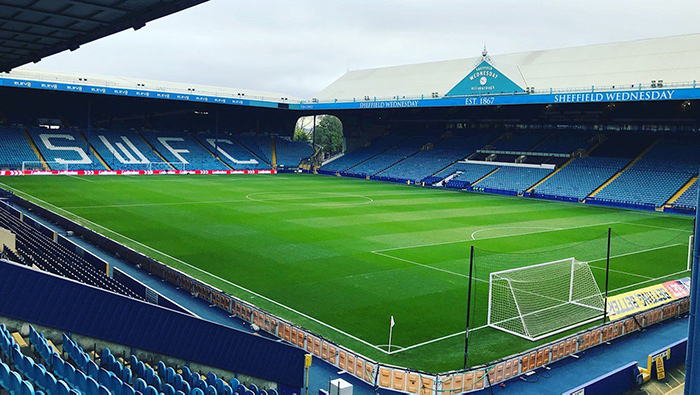The ‘Pingdemic’ Begins To Grip Sport, Potential Altering Training Ground And Stadium Protocols
 The English Football League Cup games get under way this coming weekend amid concerns over possible disruption as Covid-19 infections remain high. With several pre-season fixtures having been cancelled this week it suggests further disruption to the coming campaign by the coronavirus pandemic is inevitable. Manchester United's friendly at Preston on Saturday is the latest match to be called off because of positive cases with Norwich City being similarly impacted. Arsenal had to cancel their US pre-season tour and Newcastle lost three goalkeepers to self-isolation for one fixture.
The English Football League Cup games get under way this coming weekend amid concerns over possible disruption as Covid-19 infections remain high. With several pre-season fixtures having been cancelled this week it suggests further disruption to the coming campaign by the coronavirus pandemic is inevitable. Manchester United's friendly at Preston on Saturday is the latest match to be called off because of positive cases with Norwich City being similarly impacted. Arsenal had to cancel their US pre-season tour and Newcastle lost three goalkeepers to self-isolation for one fixture.
This new season presents potential for severe disruption particularly with the concerns over the widespread ‘pinging’ self-isolation alerts from NHS contact tracing system. The first competitive domestic fixtures to be played with no coronavirus restrictions will take place this weekend at Bournemouth’s Kings Park and Sheffield Wednesday’s Hillsborough Stadium.
With no requirement to test players this season it is acknowledged that players will be at greater risk of both catching coronavirus or being ‘pinged’ as a close contact. The EFL have issued guidance to clubs, for both training and on matchdays. Under that guidance, there are two sets of protocols, red and green. With most clubs under the green protocols, they rely on daily screening to check if any players or staff are showing symptoms. The EFL believes this is better than simply doing nothing. Red protocols would be triggered if there was a local coronavirus outbreak, if local or national restrictions were imposed by the government, or, if EFL doctors carrying out spot checks at clubs discovered the regulations were not being observed. Escalation to red protocols would be made by the league after consultation with the clubs and would involve testing.
Evidently, if clubs are not routinely testing, they cannot know if coronavirus is present and if pre-match tests are then carried out for whatever reason, matches are at risk of being called off at very short notice.
The Premier League still intends to test twice a week and will publish the results. However, unlike last season, when players had PCR tests, this season they will do lateral flow tests, both to reduce costs and speed up the process. As part of the Premier League's plan, the number of players and staff taking these tests will be increased to 100. Should any come back positive, a PCR test will then be arranged. The Premier League is also going to continue operating red zones for players and senior staff.
For the first few weeks of the season at least, clubs will be asked to continue with the established virtual media conferences both before and after games. At Sheffield Wednesday’s match at Hillsborough this coming Sunday fans will not be required to show proof of vaccination status or previous negative tests and no social distancing or mask wearing measures will be in place, for an anticipated crowd of around 8,000, the first game in front of fans since the pandemic began. However, as a club who averaged attendances of over 24,000 pre-pandemic, the plan for stadiums hosting crowds of 20,000 or higher to make it compulsory for fans to ‘show that they are fully vaccinated’ is unrealistic.
This procedure is due to be trialled in pre-season games at Chelsea and Tottenham next month and has brought into question how this process can realistically be implemented on a busy matchday.

Sheffield Wednesday’s Hillsborough Stadium is one of the first stadia to hold a competitive domestic fixture to be played with no coronavirus restrictions.















































